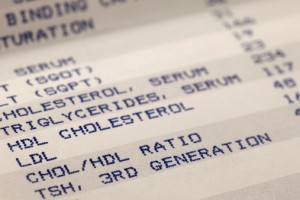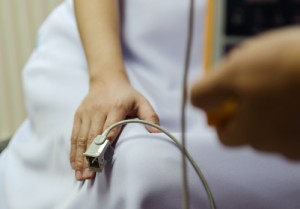Gastric Bypass Surgery Intended for Appetite Suppression
Some individuals who have tried and not been successful at controlling their weight by means of appetite suppression may be contemplating gastric bypass surgery. This surgery is usually a last resort for those who are not able to manage their weight in another way.
If you have been obese (having a body mass index of 40 or more) for a number of years and have tried unsuccessfully to shed pounds, stomach reduction surgery or gastric bypass surgery could be a way to reduce your consumption of food and help you lose weight.
Gastric bypass surgery is a major surgery and you will discover risks and complications involved. A number of patients develop leaks from the stomach into the abdomen, blood clots inside the lung, gallstones, anemia or osteoporosis. Fewer than 1% of patients die after the operation.
Your stomach is usually stapled or perhaps a plastic gastric band is used to construct a small stomach pouch. Then a part of your small intestine, after the duodenum, is attached to this stomach pouch. The very first part of the small intestine (the duodenum, where most chemical digestion occurs) is bypassed so less absorption of nutrients takes place.
The little stomach pouch can accept only a few ounces of food at a time this means you feel full quickly. You'll consume a smaller amount and, perhaps, make better selections of the food you eat. In the end, the results of a smaller amount of food consumption and less absorption of nutrients means reduced calories and, as a result, weight loss.
After your operation you ought to get regular exercise and pay special attention to your nutritional plan to insure that you get the proper nutrients into your body. You will need to take vitamin supplements and may even require the help of a dietitian to ensure you get proper nutrition. You will also be required to chew your food more thoroughly to the consistency of a mush to aid absorption. Your little stomach pouch won抰 be sufficient to hold both liquids and solid food which means you will not have the ability to drink fluids for a minimum of a half an hour prior to or following a meal.
Because simple, refined, sugars will be absorbed rapidly, chances are you'll need to shun candy, ice cream, and soft drinks. In addition, unabsorbed and undigested fats and starches enter the large intestine where microorganisms act to produce gas and bloating.
You'll undergo sweeping changes in your daily activities. You might need counseling from a psychologist for a time to help you resolve the problems that prompted you to overeat coupled with help to adjust to your new eating and exercise approach to life.
The gastric bypass procedure will help the majority of patients shed 50-75 percent of their initial surplus weight in the first two years. Following this time, because the stomach pouch stretches, some patients could suffer a increase in weight as they learn to increase food servings and take in more calories in ways that prevent the gas and bloating in the lower intestine.
While a gastric bypass surgery isn't the ideal appetite suppression method, it can be a last resort if you have tried other techniques with no success.
-
Different Methods Of Weight Loss
There are different methods of weight loss, but mainly weight loss is
-
Burn Extra Fat And Slim Down – Even Whenever You Are Sleeping
Burn body fat 24 hrs a day is simple. Yes, I said easy but I did not s
-
Learn How to Lose Weight Quickly
Learning how to lose weight is just part
-
Most Effective Type Of Weight Loss Programs
There are many weight loss programs for people to lose weight. But th
-
Is Taxation the Answer to Obesity and Successful Weight Loss?
As the obesity epidemic continues to spread throughout the western
-
Which Whey to Go
In the world of dietary supplements and functional foods there are
- DON'T MISS
- How to Lose Weight with Potato Juice
- Could hormonal havoc be contributing to your overeating?
- How To Lose Weight And Maintain It Long Term
- Loosing Weight Fast For Teens - Esiest Way To Lose Weight Fast.
- Weight Loss - The Reasons Weight Loss is So Important
- Lose Weight For The Summer
- Lose Belly Fat And Keep It Off
- It Takes Time If You Want To Lose Weight Permanently
- Weight Loss Spas Where You Can Relax And Slim
- Secrets Of The Weight Loss Gurus




